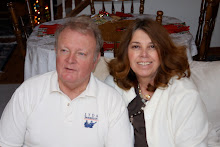Linda Daly
Dr. Souder
English 501
27 April 2010
Title: The Reticent Writer, Invention and Social Consciousness
Abstract:
This paper seeks to challenge and engage the reticent writer . Many of the theories of Mike Rose are used to develop cognitive inquiry and scaffolding strategies needed to become a confident writer. Collaborative strategies are explored in assisting the reticent writer to engage in what Carter and Rickly term as “recursive, reflective meta-cognition to solve .problems (131).
There is a discussion of the cultures of reticent writers and developing critical consciousness, as the ideal philosophical instructional stance to teach composition requires a knowledge of rhetoric and a critical eye aimed toward the concerns of mankind and morality. It is suggested that setting up a research design that is authentic, verifiable and convincing promotes engagement along with a social construct, which is meaningful to the student and promotes critical inquiry. The reticent writer is therefore assigned a writing assignment using a social construct using ethnographic writing . The reticent writer is asked how they can answer a call for freedom when confronted with disenfranchisement in the common-place narratjve, or traumatic narrative of a cultural grouping. The narrative may be defined by symbols, products, oral handed down stories, values, beliefs or patterns of behavior (Boivin 128-180). The reticent writer brings their own world-view and interpretation to the narrative, which they then write about their investigation, using both expressive and social discourse.
Bringing elements of a disenfranchised community into the classroom or the classroom into the community, involving a carefully planned expansion of the collaborative aspects of discourse, may further add to the structure and dynamism needed to engage the reticent writer in the composition classroom. Imagination and originality become possible, as true dialogue, involving discourse with reflection offers surprises and unexpected alliances with others. Critical consciousness may be awakened, along with a possible call to action.
Works Cited
Bishop, Wendy. “I-Witnessing in Composition: Turning Ethnographic Data into
Narratives.” Rhetoric Review. 11.1 (Fall 1992): 147-158. Print.
Bishop, Wendy. Released Into Language: Options for Teaching Creative Writing.
Urbana, IL: NCTE, 1990. Print.
Boivin, Nicole. Material Cultures, Material Minds. Cambridge: Cambridge University
Press, 2008. Print
Burns, Hugh. “Four Dimensions of Significance: Tradition, Method, Theory,
Originality.” (Class Handout.)
Carter, Locke and Rebecca Rickly. “Mind the Gap(s): Modeling Space in Online
Education.” Online Education: Global Questions, Local Answers. Amityville,
New York: Baywood Publishing Company, Inc., 2005. 123-139. Print.
Cooper, Marilyn M. “Postmodern Possibilities in Electronic Conversations.”
Hawisher, Gail E. & Cynthia Selfe, eds. Passions, Pedagogies and 21st Century
Technologies. Logan, Utah: Utah State University Press 1999. 140-160. Print.
Eldred, Janet M. “Pedagogy in the Computer-Networked Classroom.”
Sidler, Michelle, Richard Morris, and Elizabeth Overman Smith, eds. Computers
in the Composition Classroom: A Critical Sourcebook. Boston: Bedford/St.
Martin’s, 2008. 239-250. Print.
George, Ann. “Critical Pedagogy: Dreaming of Democracy.” Tate, Gary, Amy Rupiter
& Kurt Schick. A Guide To Composition Pedagogies. New York: Oxford
University Press 2001. 92-112. Print.
George, Diana and John Trimbur. “Cultural Studies and Composition.” Tate, Gary,
Amy Rupiper and Kurt Schick. A Guide to Composition Pedagogies. Oxford:
Oxford University Press, 2001. 54-70. Print.
Gorzelsky, Gwen. The Language of Experience: Literate Practices and Social Change.
Pittsburgh, PA: University of Pittsburgh Press, 2005. Print.
Howard, Rebecca Moore “Collaborative Pedagogy.” Tate, Gary, Amy Rupiper and Kurt
Schick. A Guide to Composition Pedagogies. Oxford: Oxford University Press,
2001. 54-70. Print.
Hull, Glynda, Mike Rose, Kay Losey Fraser and Marisa Castellano. “Remediation as
Social Construct: Perspectives from an Analysis of Classroom Discourse.” Ede,
Lisa, Ed. On Writing Research: The Braddock Essays, 1975-1998. Boston:
Bedford/St. Martin’s 1999. 284-311. Print.
Mayers, Tim. (Re)Writing Craft: Composition, Creative Writing, and The Future of
English Writing. Pittsburgh: The University of Pittsburgh Press 2005. Print.
Mutnick, Deborah. “On the Academic Margins: Basic Writing Pedagogy.” Tate, Gary,
Amy Rupiper and Kurt Schick. A Guide to Composition Pedagogies. Oxford:
Oxford University Press, 2001. 183-202. Print.
Ohmann, Richard. “Literacy, Technology, and Monopoly Capital.” Slider, Michelle,
Morris, Richard and Smith, Elizabeth Overman, eds. Computers in the Composition Classroom. Boston: Bedford/St. Martin’s, 2008. 20-34. Print.
Peck, Wayne Campbell, Linda Flower and Lorraine Higgins “Community Literacy.”
Miller, Susan, Ed. The Norton Book of Compositions Studies. New York: W. W.
Norton & Company, Inc. 2009. 1097-1116. Print.
Rose, Mike. An Open Language: Selected Writing on Literacy, Learning, and
Opportunity. Boston: Bedford/St. Martin’s, 2006. Print.
Shankman, Steven. “Creating a Culture of Dialogue and Peace.”
The University of Oregon Conference. UO Channels. The Promise of Reason,
2008. Web. 04/01/10 http://www.uoregon.edu/channel/?p=154
Slider, Michelle, Richard Morris and Elizabeth Overman Smith, eds. Computers in the
Composition Classroom. Boston: Bedford/St. Martin’s, 2008. Print.
writer
Tuesday, April 27, 2010
Subscribe to:
Post Comments (Atom)




No comments:
Post a Comment